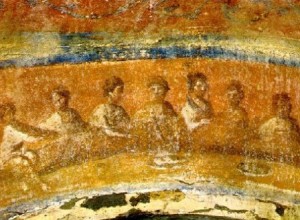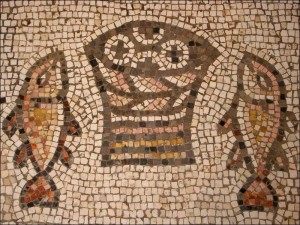 Allow me to suggest a major twist to the ways we read and understand the familiar parables in Luke 15:
Allow me to suggest a major twist to the ways we read and understand the familiar parables in Luke 15:
Jesus asks, “Which of you…?”
And then he describes this guy who loses one sheep out of a hundred. He leaves the ninety-nine sheep out in the middle of the desert exposed to who knows how many kinds of danger and peril. Then he beats the bushes all day long in the searing heat, climbing over rocks, crawling through the Acacia, to finally locate this one, single, solitary sheep.
Then Jesus describes a woman who loses one coin. She rips up all the carpet in her house, she pulls every cushion out of every couch, she cleans out every junk drawer and goes through every closet, she plunges the toilet, meticulously combing over every square inch of her dwelling to find this one, single, solitary coin.
Then Jesus describes a father who has a son who steals half his fortune. This son runs away from home, he squanders the family money on drugs, alcohol, and prostitution, and he winds up on nine different state criminal registries. This guy is broke, he’s gross, and he limps home after all this time, after blowing the family money and ruining the family name, he crawls back home and his dad throws him a huge party. He restores the son to his previous position with the family right there on the spot. No questions asked.
And Jesus asks, “Which of you…?”
I think we’ve traditionally answered Jesus’ question by saying, “Well, all of us! Anybody with a heart! We would all take these steps, we would all go to these lengths to find what is lost! Of course!”
Really? Is that really true?
I don’t know about you, but I’d probably keep my eyes on the ninety nine sheep and make sure they’re safe and write off the other one as a loss on my tax return. I wouldn’t get down on my hands and knees for more than a minute-and-a-half for just one coin, would you? And this son? Seriously? What would you do? I’d at least make this kid finish his apology speech. He’d have to earn the robe and the ring. He’d have to get a job. Enter rehab. Get some counseling. And it would be six months before I’d even consider letting him have his cell phone back! He’d have to earn my trust back.
When Jesus tells these stories and asks, “Which of you…?” I think the honest answers is, “None of us.”
None of us would really do these things. It’s too unseemly. Too reckless. It’s not responsible. It doesn’t make sense.
Ah, ha! Exactly! These are not stories about us, these are stories about God. Jesus is not saying God’s love and commitment is just like ours. He’s saying God’s love and devotion and determination to find what is lost is like nothing you’ve ever experienced in your whole life! Jesus is telling us that our God will stop at nothing — nothing! He’ll do whatever it takes for as long as it takes to find and rescue everybody who is lost.
Including you.
Like most of Jesus’ stories, this is a contrast, not a comparison. God will take great risks, he’ll go to foolish extremes, in order to save. And we’ve never, ever experienced anything quite like it.
Peace,
Allan






Recent Comments